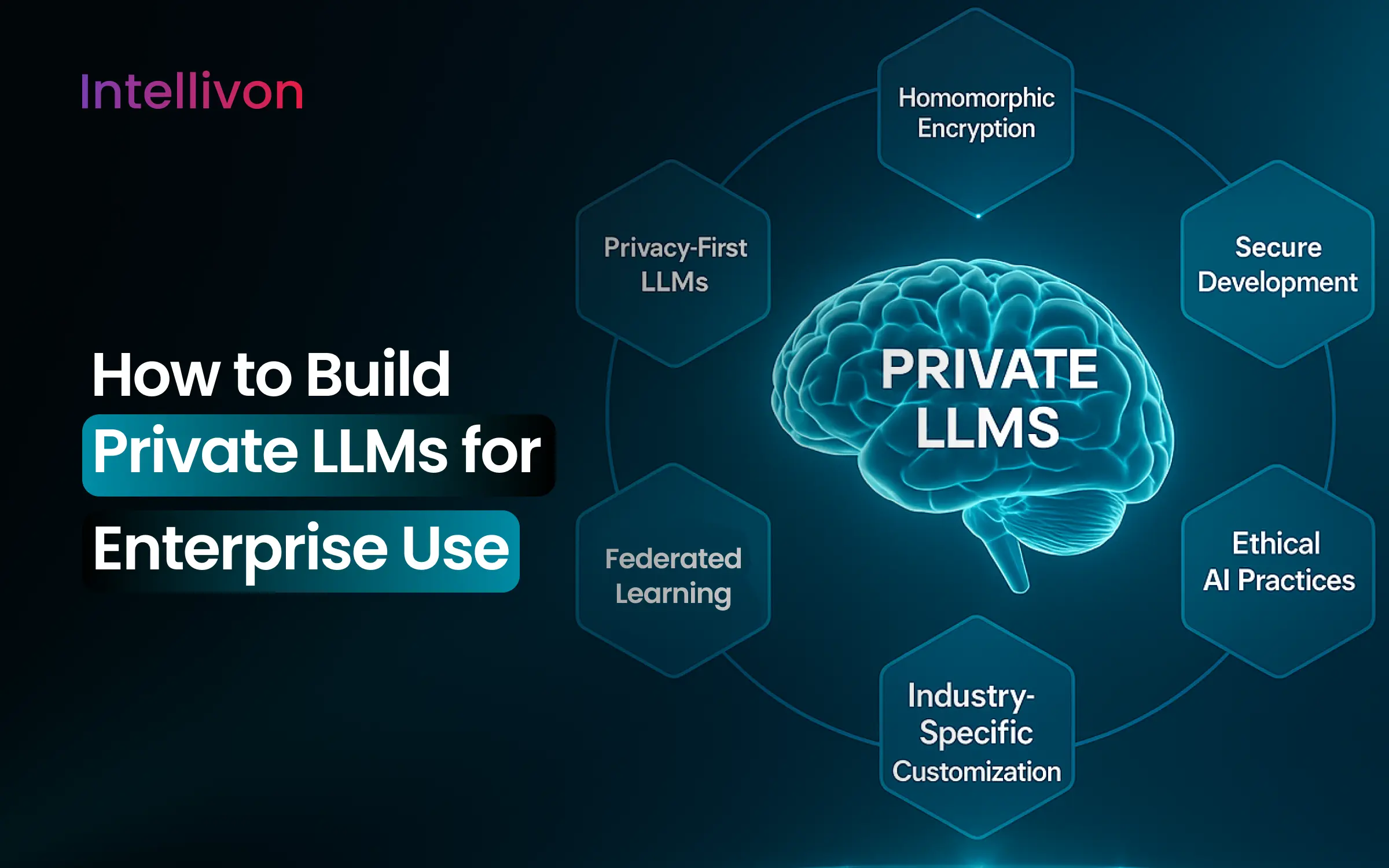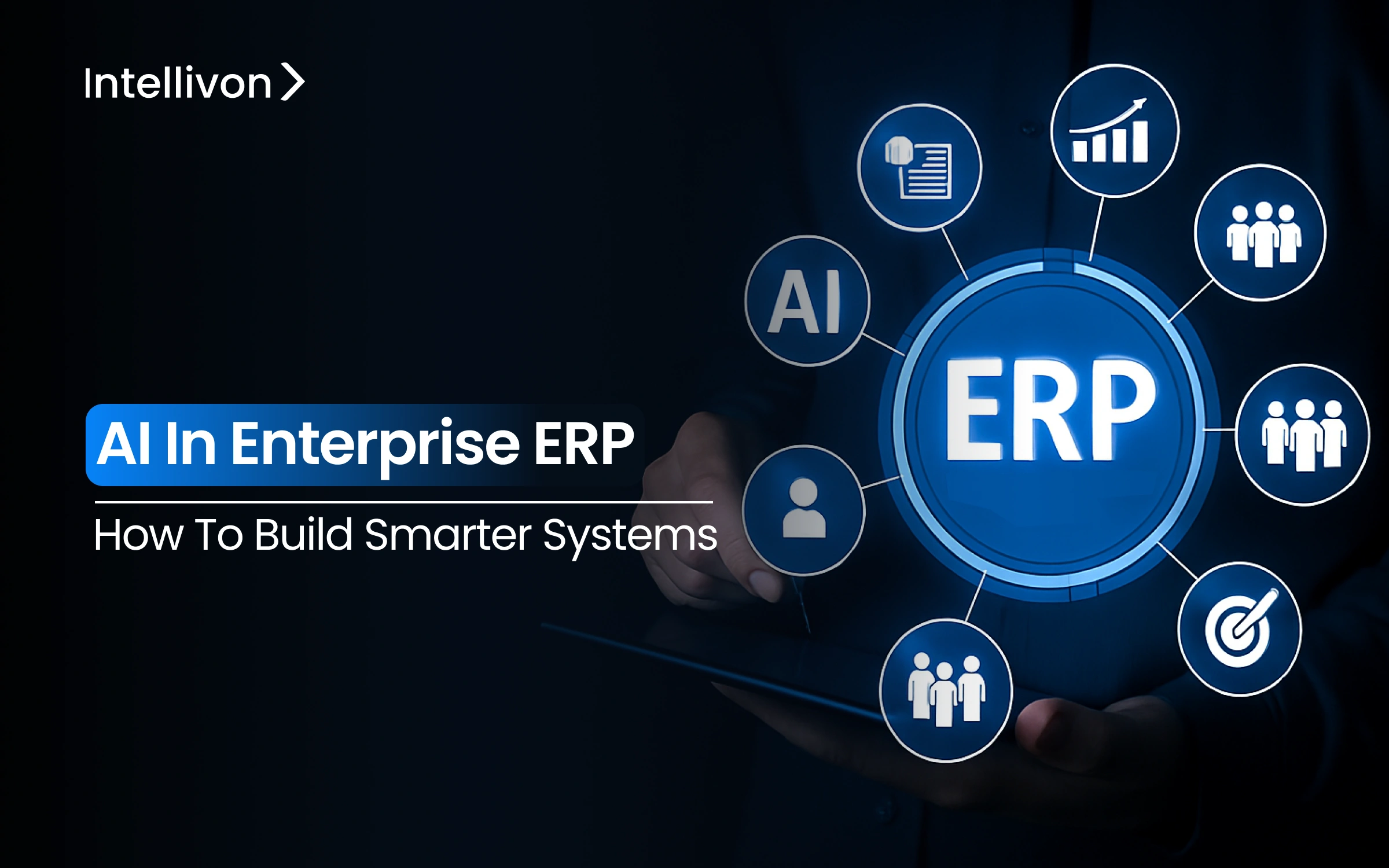Enterprise Resource Planning (ERP) systems are evolving to meet the demands of the data-driven digital economy. Traditionally known for integrating business processes across departments, ERPs are now being reimagined as intelligent systems powered by Artificial Intelligence (AI).
With global competition intensifying, businesses require real-time insights, agility, and predictive capabilities to stay ahead. Static, rule-based ERP systems often lack the flexibility and depth of analysis needed. AI fills this gap by adding adaptive learning, automated decision-making, and natural language understanding to ERP platforms.
This article explores how enterprises can build AI-enhanced ERP systems that are smarter, faster, and better equipped to handle complex business environments. We will break down the technologies, processes, benefits, and real-world examples of AI-ERP integration to help guide your organization’s digital transformation journey.
Understanding ERP Systems in the Modern Enterprise
Modern ERP systems unify critical business functions—finance, HR, procurement, inventory, and more—into a single digital ecosystem. These platforms reduce data silos, streamline operations, and improve transparency.
However, traditional ERPs often require manual data entry, static reporting, and predefined workflows. This rigidity limits their ability to adapt to market shifts or process anomalies in real time. The consequence is slower decision-making, higher operational costs, and decreased customer satisfaction.
By integrating AI, ERP systems evolve into adaptive frameworks capable of learning from historical data and making recommendations based on predictive analytics. AI enables ERP systems to continuously improve by ingesting new data, learning patterns, and delivering more accurate forecasts. This shift empowers enterprises to operate with greater speed, accuracy, and foresight.
Why AI and ERP Are a Powerful Combination
AI brings transformational value to ERP platforms:
- Predictive Analytics: Forecast demand, revenue, and workforce trends using historical and real-time data, enabling more proactive business strategies.
- Process Automation: Streamline repetitive tasks such as invoice approvals, payroll, and inventory reordering, reducing human error and freeing up employee time.
- Intelligent Assistance: Provide decision support through smart alerts, contextual insights, and AI-driven dashboards that guide users to better outcomes.
- Natural Language Interfaces: Enable users to interact with ERP systems using voice commands or chatbots, increasing accessibility and reducing the learning curve.
- Continuous Optimization: Monitor system performance and recommend improvements in operations and cost efficiency, ensuring continuous business improvement.
By transforming ERP from a passive system of record into an active decision-making engine, AI enhances every layer of enterprise functionality.
Strategic Areas for AI Integration in ERP
Finance and Accounting
AI automates routine finance tasks like reconciliations, invoice processing, and tax calculations. It can detect anomalies in transactions to prevent fraud and ensure compliance. Predictive models help forecast cash flow and budget requirements based on economic indicators, seasonality, and spending patterns.
Human Resources
AI revolutionizes HR by speeding up recruitment, reducing bias, and analyzing employee engagement. Resume screening tools match candidates more effectively, while sentiment analysis helps HR monitor workforce morale. AI also personalizes learning and development recommendations based on employee behavior.
Supply Chain Management
Supply chain is one of the most AI-ready areas in ERP. AI enhances demand forecasting, automates reorder points, and optimizes inventory levels. Predictive models assess supplier risk and delivery delays, allowing proactive mitigation. Real-time tracking improves logistics accuracy and customer satisfaction.
Customer Relationship Management (CRM)
AI-driven CRM tools offer a 360-degree view of the customer. AI scores leads, predicts churn, and provides personalized content based on behavioral data. Chatbots and virtual agents offer round-the-clock support, resolving customer queries without human involvement and improving service consistency.
Production and Manufacturing
AI-enabled ERP modules in manufacturing detect potential breakdowns through predictive maintenance, reducing downtime. Machine vision ensures product quality control, while AI-assisted planning adjusts production schedules to optimize for labor, materials, and time efficiency.
Designing a Smart ERP System with AI
Setting Clear Business Goals
AI implementation should begin with clearly defined objectives. These could include improving inventory turnover, reducing operational costs by a certain percentage, increasing forecast accuracy, or enhancing employee productivity. Each goal should tie back to overall enterprise KPIs.
Choosing the Right AI and ERP Technology Stack
Compatibility is key. Enterprises should evaluate whether their current ERP system supports AI integrations. Many modern platforms, such as SAP S/4HANA, Oracle Cloud ERP, and Microsoft Dynamics 365, come with built-in AI capabilities. The AI technology stack should include tools for data ingestion, model development, testing, and deployment.
Data Readiness and Integration Strategy
AI models require high-quality data. Enterprises need to identify all relevant data sources—structured and unstructured—and implement ETL (Extract, Transform, Load) pipelines. Data lakes and warehouses ensure centralized storage, while APIs connect ERP with third-party platforms. Governance policies should enforce data consistency, privacy, and lineage tracking.
Building Custom AI Models vs. Using Off-the-Shelf Tools
While prebuilt AI tools accelerate implementation, custom models offer better performance for unique business needs. The decision depends on available resources, data maturity, and use case complexity. A hybrid approach—starting with off-the-shelf and moving to custom as expertise grows—is often most effective.
Implementation Roadmap for AI in ERP
Pilot Programs and Proof of Concepts
Begin with a focused pilot project to test feasibility and value. Select a high-impact, low-risk process like invoice automation or chatbot support. Define success metrics, timelines, and data sources clearly. A successful pilot builds momentum for broader implementation.
User Training and Change Management
Technology alone isn’t enough—people must be ready to use it. Conduct workshops and training sessions to build digital confidence among users. Communicate the benefits of AI, dispel myths about job replacement, and involve employees in the design and testing process.
Ensuring Compliance and Governance
As AI becomes more embedded, regulatory scrutiny increases. Establish a governance framework for ethical AI use. Ensure AI decisions are explainable, reproducible, and auditable. Maintain compliance with GDPR, CCPA, and industry-specific regulations through regular audits and documentation.
Measuring ROI and Business Impact
Success should be tracked through tangible metrics: reduction in processing time, increase in forecast accuracy, cost savings, and improved user satisfaction. Use BI dashboards to visualize progress and adjust models or workflows as needed. ROI insights also support future investments in AI initiatives.
Benefits of AI-Enhanced ERP Systems
- Enhanced Operational Efficiency: Accelerates workflows and reduces bottlenecks.
- Improved Accuracy: AI validates data entry, flags inconsistencies, and eliminates manual errors.
- Agility and Scalability: Respond faster to market changes with adaptive systems.
- Informed Decision-Making: Access to real-time, predictive insights improves strategic planning.
- Competitive Advantage: Early AI adopters can streamline operations, reduce costs, and innovate faster than competitors.
Challenges and Risk Factors
- Data Fragmentation: Disconnected systems lead to incomplete or outdated data, undermining model accuracy.
- Talent Shortage: Skilled professionals in AI and ERP are in high demand and short supply.
- High Initial Costs: While AI lowers long-term costs, upfront investment can be a barrier for some businesses.
- Algorithmic Bias: AI systems may inherit bias from historical data, impacting fairness and accuracy.
A phased rollout, combined with strategic partnerships and internal capability building, can help mitigate these risks.
Real-World Examples of AI-ERP Integration
- Shell: Uses AI in SAP to optimize maintenance scheduling and predict asset performance, reducing unplanned downtime.
- Coca-Cola: Employs AI analytics with ERP data to fine-tune marketing campaigns and forecast consumer demand more accurately.
- Deloitte: Designed a smart ERP suite that automates nearly 70% of finance operations using AI, resulting in cost savings and faster closing cycles.
- Toyota: Integrates AI across ERP and manufacturing systems to enable just-in-time inventory, predictive quality assurance, and energy-efficient production.
Future Outlook: What’s Next for AI in ERP?
- Generative AI for Business Insights: Convert complex ERP datasets into narrative reports or visual summaries in seconds.
- Voice-Driven ERP Interfaces: Improve accessibility and speed with voice commands and conversational AI.
- Autonomous ERP Systems: AI-powered systems that detect anomalies, self-correct, and optimize without human input.
- AI-Powered ESG Reporting: Meet sustainability goals by analyzing and reporting environmental and social metrics with AI.
The future ERP is intelligent, proactive, and indispensable to strategic leadership and innovation.
FAQs: People Also Ask
How does AI improve ERP systems?
AI enhances ERP by enabling predictive analytics, process automation, intelligent assistance, and personalized user experiences.
What are examples of AI in ERP?
Examples include chatbots in HR modules, machine learning for financial forecasting, and NLP for contract analysis.
Is AI integration in ERP expensive?
Costs vary by scope and technology, but cloud-based platforms and pre-built AI tools can make integration more accessible and cost-effective.
Can small businesses benefit from AI in ERP?
Yes. Modular AI tools and SaaS ERP solutions offer scalable entry points for small to mid-sized businesses.
What skills are needed to implement AI in ERP?
Teams need a mix of skills: data science, machine learning, ERP configuration, project management, and change leadership.
Conclusion
ERP systems are evolving from static transaction processors to intelligent business hubs. With AI integration, they become proactive systems that anticipate needs, solve problems, and unlock new opportunities.
To build a smart ERP, enterprises must combine strategic clarity, technological readiness, and organizational commitment. The future belongs to businesses that not only digitize—but also intelligently optimize—their operations through AI-powered ERP.





